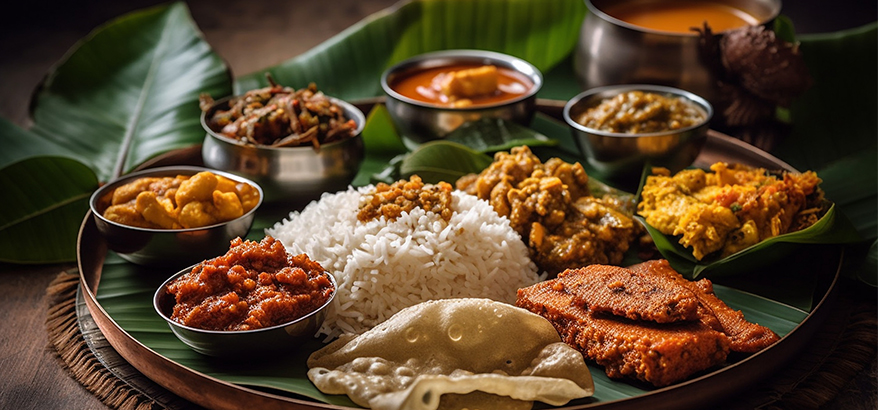
Central to Ayurvedic practice is the concept of doshas: Vata, Pitta, and Kapha, which are energies believed to circulate in the body and govern physiological activity.
Understanding one's dosha can guide dietary choices that enhance health, energy, and overall balance.
Identifying your predominant dosha is the first step toward a balanced diet in Ayurveda. Vata, composed of air and ether, governs movement and flexibility. Pitta, made of fire and water, oversees digestion and metabolism. Kapha, a combination of earth and water, controls growth and structure. Each person possesses a unique blend of these energies, with one or two usually being more dominant.
Vata: Nourishing Stability
Vata types benefit from warm, cooked, and grounding foods that balance their inherent lightness and mobility. Their diet should include:
Pitta: Cooling Vitality
Pitta individuals should opt for cooling and energizing foods to counterbalance their fiery nature, avoiding overly spicy, salty, or sour dishes. Ideal choices include:
Kapha: Stimulating Lightness
Kapha types need stimulating and light foods to balance their tendency towards sluggishness and heaviness. Their diet should feature:
Incorporating the principles of Ayurveda into daily meals involves more than just choosing the right foods; it also requires mindfulness of when and how we eat:
Eat According to Your Hunger Signals: Ayurveda advises against eating before the previous meal has been digested. Listen to your body's hunger cues.
Focus on Seasonal Eating: Align your diet with the seasons. For instance, favour cooling foods in the summer and warming foods in the winter, adjusting for your dosha's needs.
Practice Mindful Eating: Eat in a calm environment, focusing on your meal without distractions. This mindfulness aids digestion and satisfaction.
Breakfast: Start with a warm, cooked breakfast. Vata might enjoy oatmeal with ghee, Pitta could opt for a cooling fruit salad, and Kapha might choose a light barley porridge.
Lunch: Make lunch the largest meal of the day when digestive fire is strongest. A balanced plate of protein, grains, and vegetables suits all doshas, with specific adjustments for each.
Dinner: A lighter meal than lunch, eaten before 7 pm, supports natural detoxification processes overnight.
AUnderstanding and catering to your dominant dosha can transform your approach to eating, turning meals into a nourishing ritual that supports your Ayurvedic constitution. Remember, the goal of Ayurvedic nutrition is balance — not just in the foods we eat, but in our approach to life.
At Dr. Raniya Sulthana Ayurveda Clinic, we believe in the power of personalised Ayurvedic wellness plans, including dietary guidance tailored to your unique dosha. Whether you're seeking to improve your general health, address specific issues, or simply wish to explore Ayurveda, our team is here to guide you on your journey to holistic well-being.
Embark on a path to balanced health and vitality. Contact us today to learn more about how Ayurvedic principles can enrich your life, or visit us at Dr. Raniya Sulthana Ayurveda Clinic for a consultation. Let us help you discover the ideal balance for your body and mind through the wisdom of Ayurveda.
First Floor, Somanathapuram, Door No 4, 11B, Paper Mills Road, near Square Brothers Xerox, Kolathur, Tamil Nadu 600099.
First Floor, 241, Poonamallee High Rd, Maduravoyal, Chennai, Tamil Nadu 600095.
No. 63, HIG1, Ground Floor, Mogappair West Main Road, Nolambur, Chennai, Tamil Nadu 600037.

Copyrights All Rights Reserved Dr. Raniya Sulthana Ayurveda Multispeciality Clinic | Website Designed & Developed By GlintCreatives.com